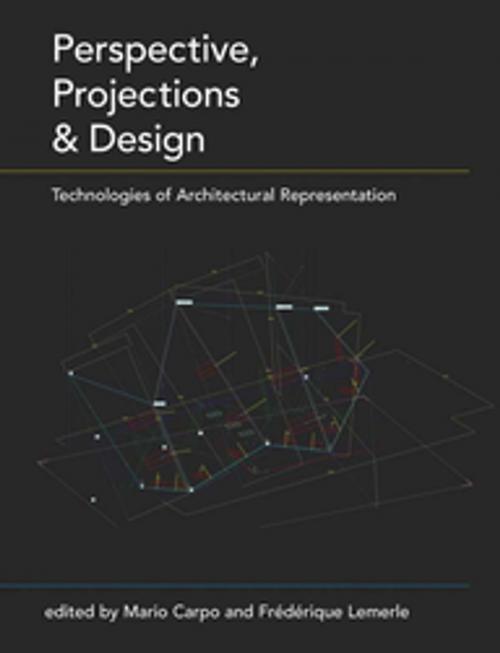Perspective, Projections and Design
Technologies of Architectural Representation
Nonfiction, Art & Architecture, Architecture, Methods & Materials| Author: | ISBN: | 9781135657079 | |
| Publisher: | Taylor and Francis | Publication: | April 15, 2013 |
| Imprint: | Routledge | Language: | English |
| Author: | |
| ISBN: | 9781135657079 |
| Publisher: | Taylor and Francis |
| Publication: | April 15, 2013 |
| Imprint: | Routledge |
| Language: | English |
The essays selected for this book, presented in chronological order, discuss various aspects of image-making technologies, geometrical knowledge and tools for architectural design, focusing in particular on two historical periods marked by comparable patterns of technological and cultural change. The first is the Renaissance; characterized by the rediscovery of linear perspectives and the simultaneous rise of new formats for architectural drawing and design on paper; the second, the contemporary rise of digital technologies and the simultaneous rise of virtual reality and computer-based design and manufacturing.
Many of the contributing authors explore the parallel between the invention of the perspectival paradigm in early-modern Europe and the recent development of digitized virtual reality. This issue in turn bears on the specific purposes of architectural design, where various representational tools and devices are used to visualize bi-dimensional aspects of objects that must be measured and eventually built in three-dimensional space.
The essays selected for this book, presented in chronological order, discuss various aspects of image-making technologies, geometrical knowledge and tools for architectural design, focusing in particular on two historical periods marked by comparable patterns of technological and cultural change. The first is the Renaissance; characterized by the rediscovery of linear perspectives and the simultaneous rise of new formats for architectural drawing and design on paper; the second, the contemporary rise of digital technologies and the simultaneous rise of virtual reality and computer-based design and manufacturing.
Many of the contributing authors explore the parallel between the invention of the perspectival paradigm in early-modern Europe and the recent development of digitized virtual reality. This issue in turn bears on the specific purposes of architectural design, where various representational tools and devices are used to visualize bi-dimensional aspects of objects that must be measured and eventually built in three-dimensional space.















